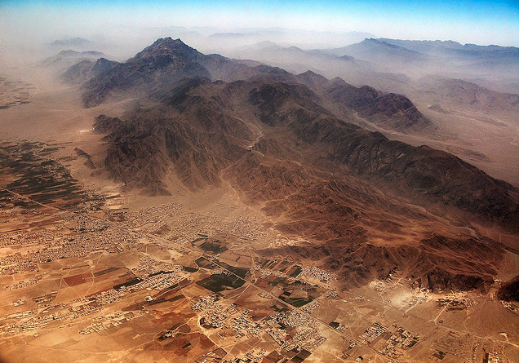
Pakistan’s Energy Crisis
Pakistan is in the midst of a complex energy crisis that is going to require multiple levels of government response, private investment, and cultural change. The foundation of the problem is Pakistan’s poor energy infrastructure, which makes energy theft easy and transmission and distribution losses high.
Distribution losses, often attributed to theft and pilferage, are about 30%. Pakistani government officials at a recent Wilson Center conference, “Pakistan’s Interminable Energy Crisis: Is There Any Way Out?” including the country’s secretary for water and power Nargis Sethi, attributed a significant part of the problem to the national psyche: many citizens believe that energy should be free, leaving them with no qualms about stealing electricity. Furthering circular debt, theft has driven up energy prices across the board.
Advisor to the prime minister on energy, Musadik Malik, spoke extensively on the state of the Pakistan’s energy sector. He stated that “circular debt” is comprised of high cost, subsidization, transmission and distribution losses, theft, and a growing supply-demand gap as a result of faulty infrastructure that can keep up with neither the growing population nor the increasing urbanization of the country.
In a country of nearly 120,000,000 people, almost 68% of the population lives on less than 300 units of electricity a day – enough to power about one fan, two light bulbs, and maybe a single electronic charger. This part of the population has received $2.8 billion in subsidies, which ultimately drive up the price of energy for others.
Making energy affordable for the average Pakistani is key. A unit of energy costs about 7 cents in surrounding countries; in Pakistan a unit costs 14.7 cents. However, energy is sold at only 8 cents, creating a 6 cent gap that is left for the government to pay.
Pakistan’s supply and demand gap is an additional hurdle. Current population growth is at nearly 1.5% per year – most of which is taking place in cities, as Pakistani urbanization is on the rise. More and more people are flocking to cities, requiring increased industrial energy usage.
Malik hopes that if Pakistan fulfills its plans to upgrade energy infrastructure, international investors will become involved. He states, however, that change is needed for Pakistan’s energy economy so badly that even without outside international investment government officials plan on charging ahead. This will require Pakistan’s complex bureaucratic systems to remove excessive red tape, improve transparency and aim for greater competition.
In an effort to increase transparency, there is hope that having data widely available online will create a way for people and places to compare prices and load-sharing issues. There have been some public-private energy partnerships within Pakistan, and the government is pushing to put more energy information online. Accountability is an additional problem that must be tackled; panelists believed this will be fixed by holding engineers accountable for losses.
Government officials are hoping to generate a more sustainable energy sector by creating a balanced portfolio, including oil, natural gas, coal, solar, wind and hydropower generation. Malik claimed that Pakistanis understand the effects fossil fuels have on the environment, but pointed out that the U.S. receives 44% of their energy from coal while Pakistan receives none. In line with environmental arguments, Malik explained that the Pakistani government wants to address the demand side, as well. Creating standards and “time-of-day” technology in order to save money is one way they are hoping this will be accomplished.
Before any major shifts in energy pricing can occur, Pakistan is in dire need of updated infrastructure. The most important steps will be to bring existing capacity online and improve distribution. Longer term goals will be building natural gas pipelines and increasing renewables infrastructure.
Photo Courtesy: Michael Foley






[…] the US take the lead in setting the standard for global trade practices. On Our Flashpoint Blog Pakistan’s Energy Crisis Kendall […]
[…] Pakistan’s Energy Crisis Kendall Strong […]
[…] problems such as widespread inefficiencies (including transmission and distribution losses approaching 30 percent) and sectoral debt approaching $3 billion. The losses occur for a variety of reasons. These include […]
Hello Your current site loads up literally slow in my opinion, I
don’t know who’s problem is that but twitter and facebook starts pretty immediate.
Well, I need to thank you very much for putting brilliant blog post.
I guess it really has been helpful to many people who came in this
article. I need to mention that you actually have done fantastic work with this and also expect to see
further wonderful things from you. To get more understanding through articles you publish, I’ve book-marked this
site.
[…] reach 12 to 16 hours per day. During these periods up to 70% of the population lives on less than 300 units of electricity, enough to power a fan, two light bulbs and an electronic charger. Constant […]
[…] reach 12 to 16 hours per day. During these periods up to 70% of the population lives on less than 300 units of electricity, enough to power a fan, two light bulbs and an electronic charger. Constant […]
[…] reach 12 to 16 hours per day. During these periods up to 70% of the population lives on less than 300 units of electricity, enough to power a fan, two light bulbs and an electronic charger. Constant […]